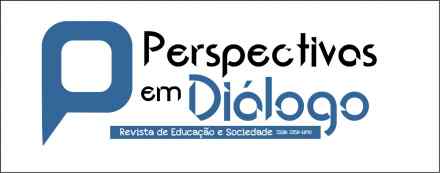PENSANDO A DEMOCRACIA E A CIDADANIA NAS INTERFACES HISTÓRICAS E CONTEMPORÂNEAS
Perspectivas em Diálogo
PENSANDO A DEMOCRACIA E A CIDADANIA NAS INTERFACES HISTÓRICAS E CONTEMPORÂNEAS
Autor Correspondente: Maria Irinilda Bezerra | [email protected]
Palavras-chave: cidadania, democracia, educação, subversão
Resumos Cadastrados
Resumo Português:
A educação não só do Brasil, mas de vários países, principalmente da América Latina tem sido direcionada de acordo com os interesses internacionais capitalistas, atualmente de forma mais marcante do que nos primeiros tempos da organização dos sistemas públicos de ensino, quando estes se expandiram sob a influência dos ideais iluministas. Nessa direção, este estudo tem o propósito discutir a relação entre educação e cidadania, pensando sobre alternativas de transformação educativa e social na perspectiva de tornar os espaços sociais mais democráticos e emancipatórios. Com esta finalidade, realizamos um estudo bibliográfico, buscando compreender como a sociedade brasileira foi construindo a lógica de exclusão. Esta lógica, nos primórdios da sua formação, se fazia por meio da negação do direito de boa parte da população frequentar a escola. Nos dias atuais, esta negação da cidadania se faz por meio, sobretudo, da expropriação da classe trabalhadora dos seus direitos econômicos e também pela desinformação propiciada pelos meios de comunicação de massa. Os interesses economicistas internos e externos acabaram criando formas múltiplas de desigualdade social e, embora reconheçamos a dificuldade de modificar as estruturas da sociedade alicerçadas sobre a injustiça social e a dualidade, precisamos, mesmo assim, construir uma “ética da rebeldia”, recusando a fatalidade das estruturas. Desse modo, poderemos pensar em projetos alternativos de uma sociedade mais justa e igualitária, na qual os diferentes protagonistas da história, esquecidos e ilegitimados historicamente, tenham espaço.
Resumo Inglês:
The education not only of Brazil, but of several countries, especially in Latin America, has been directed in accordance with international capitalist interests, nowadays more markedly than in the early days of the organization of public education systems, when these have expanded under the influence of the Enlightenment ideals. In this direction, this study aims to discuss the relationship between education and citizenship thinking about alternatives of educational and social transformation with a view to making social spaces more democratic and emancipatory. To this end, we carried out a bibliographic study, seeking to understand how Brazilian society has haved constructed the logic of exclusion. This logic at the beginning of its formation was done by denying the right of a good part of the population to attend school. In the present day, this denial of citizenship is done mainly through the expropriation of the working class of its economic rights and also through the misinformation provided by the mass media. The internal and external economist interests ended up creating multiple forms of social inequality, and although we recognize the difficulty of modifying the structures of society based on social injustice and duality, we still have to construct an “ethic of rebellion”, rejecting the fatality of structures. In this way we can think of alternative projects of a more just and egalitarian society, in which the different protagonists of history, those who had been historically forgotten and illegitimated, should have space.

